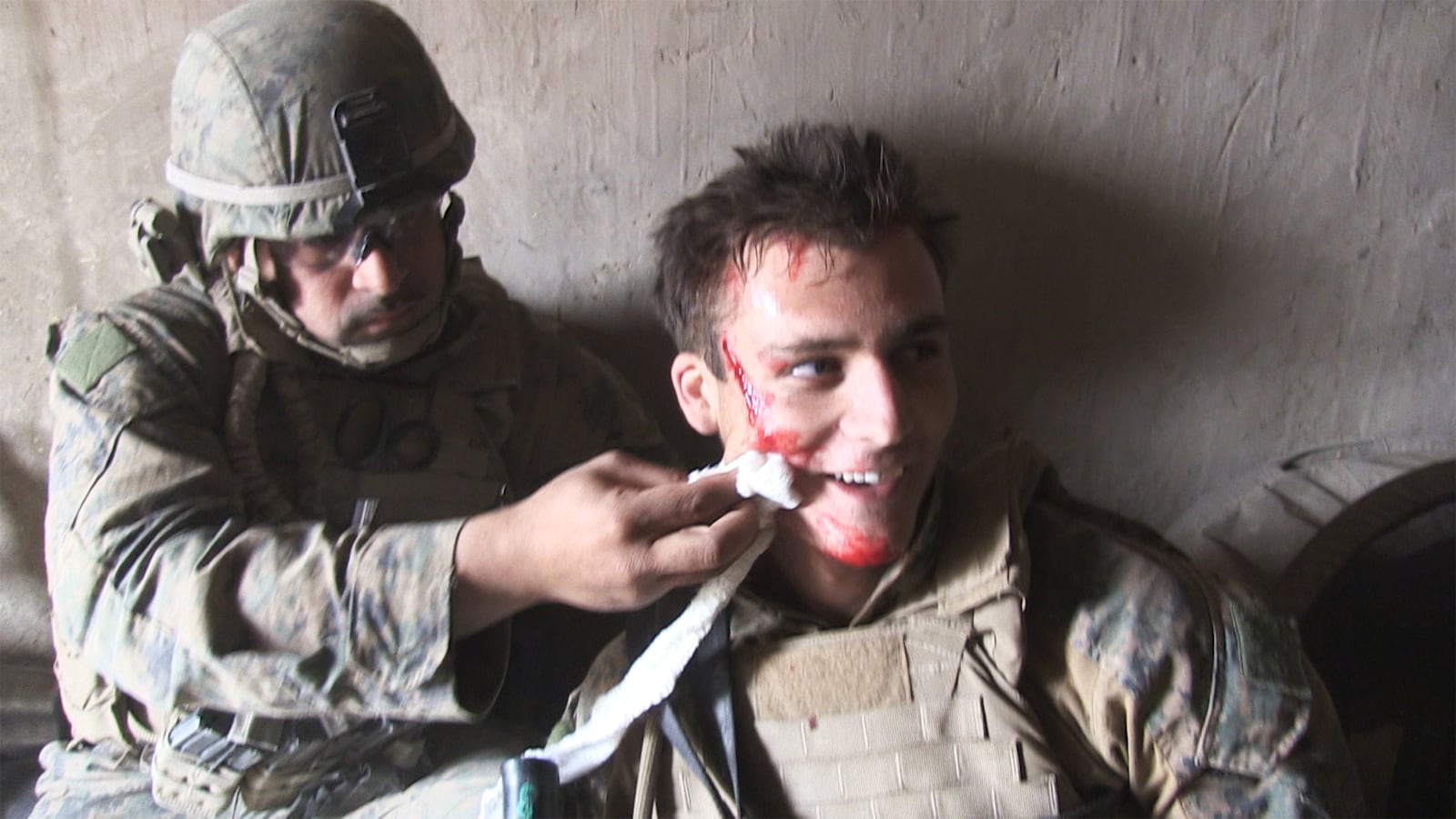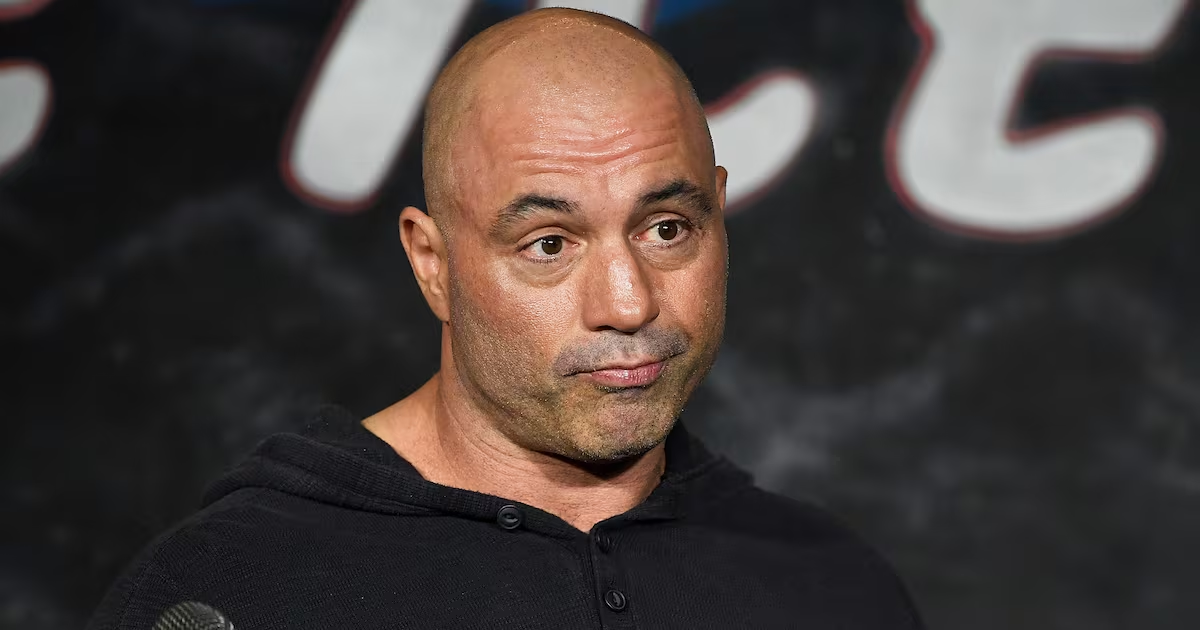The new Afghanistan war documentary Combat Obscura doesn't introduce itself, explain itself, or end in a satisfying way.
It's weird, funny, disturbing, brutal, and heartbreaking—and one of the best documentaries in years.
Combat Obscura is directed by Miles Lagoze, a former U.S. Marine Corps cameraman who spent much of 2011 in Helmand province in southern Afghanistan with a battalion of the 6th Marine Regiment based in North Carolina.
After getting out of the Marine Corps and spending a little time processing his experiences, Lagoze, now 29, enrolled in film school at Columbia University.
He just graduated. Combat Obscura is his first movie.
Lagoze came home from Afghanistan with all the footage the Marine Corps doesn't want the public to see.
Marines goofing around, bitching about the war, smoking weed, whining about the local population. Dying and mourning their dead.
It's unpretentious, unflinching, unsentimental. And in structural terms, it's utterly daring. Early on in production, Combat Obscura was shaping up to be a traditional documentary with voiceover and staged interviews that would weave in and out of the front-line footage.
"I was sort of doing a Restrepo-esque type thing," Lagoze told The Daily Beast, referring to Sebastian Junger's 2010 powerful Afghanistan war documentary.
But a conventional documentary couldn't do justice to things Lagoze saw and suffered alongside fellow cameraman Justin Loya. "It was feeling like I was just explaining the experience," Lagoze said.
Working with editor Eric Schuman, Lagoze stripped out the "where-are-they-now" interviews with the surviving Marines. What's left is just the raw experience.
You drop into Helmand province with a bunch of filthy, exasperated Marines. You hang out with them in their tents at night. You watch as a stressed-out squad leader tries to figure out if an Afghan kid is warning him about a bomb up the road, or just begging for a cigarette.
You duck for cover, heart racing, when the rockets explode and bullets zip overhead. You watch, gutted, as the Marine next to you falls wounded. He bleeds. He goes limp. The helicopter is coming to get him but it's too slow and the landing zone is a bee hive of enemy fire.
You run alongside the Marines as they shove the injured man into the aircraft. Later, you sit quietly, staring at the faces of young men who know, deep inside, that their friend won't make it.
At night you're with the Marines smoking Afghan weed from a Pringles can. Morning comes. Time for another patrol. A Marine improvises a goofy song about the war.
Schuman, the editor, is the production's secret weapon. "I would watch through the footage Miles had shot and pull from it what I found most interesting and compelling and then organize that material by subject," he told The Daily Beast. "I would then try to arrange that material together into sequences that, when placed all together, told a thematic story about a deployment in Afghanistan."
"By the end, Miles and I came upon a structure that I hope conveys a loss of innocence and growing nihilism and apathy as the film goes on."
Schuman said sound designer Ernst Karel also deserves a lot of credit. Lagoze recorded with inexpensive microphones in an austere setting while getting shot at. It took work teasing an authentic soundscape from the raw footage. "Ernst did an amazing job making all the various sources work together," Schuman said.
Lagoze dutifully submitted Combat Obscura to the Pentagon's official censors. Equally incredibly, they approved it after a brief legal tussle. This despite the drug-use. The irreverence. The onscreen wounds.
In fact, the military had no legal reason not to approve the footage, because nothing in Combat Obscura technically is classified, Lagoze explained.
But that doesn't mean Marine Corps leaders are happy with Lagoze or the film. "The guys that are upset about it are the ones who haven't seen it,” Lagoze said. “The brass."
Young Marines, enlisted Marines—they get it. "I've gotten emails from, like, gunnies [gunnery sergeants] and guys still in the Marine Corps asking if they can screen it on base," Lagoze said.
He laughed. "I don't know that that would fly."
Lagoze said there was one thing he had to do before he could release Combat Obscura. He paid a visit to North Carolina to sit with the mother of the Marine they loaded into the helicopter. The one everyone knew wouldn't make it.
Christopher P.J. Levy died of his wounds at a hospital in Germany. He was 21. Levy's mother told Lagoze to release his movie.
Combat Obscura debuted on March 15. You can find it on iTunes and Amazon and in select theaters.





